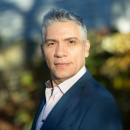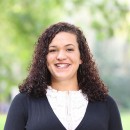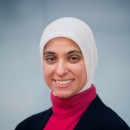School of Social Work News
Pages
- Statement on Shooting Deaths in Boulder
Once again, America has been devastated by another mass shooting. Yesterday in Colorado, ten people were killed — it is the second mass shooting in less than a week.
We extend our deepest condolences to the victims and their families, and to the communities in and around Boulder, Colorado. Senseless violence not only robs us of loved ones but also our sense of security.
We encourage our Michigan Social Work community to seek the support or counseling they need to address their own trauma. Check in with your networks, come together and remind each other of the power of human connection in terrible times.
Social workers are fed up with the pervasiveness and normalization of gun violence. We must act on behalf of our communities to denounce acts of hatred and violence, and to demand meaningful reform to end this epidemic of gun violence plaguing our nation.
To take action:
- March 23, 2021
- Statement on Shootings in Georgia
Dear Community,
We are appalled by the shooting deaths in Atlanta at three different locations where 6 of the 8 dead were Asian American women. Given the country is in the midst of an epidemic of rising anti-Asian sentiment and hate crimes, we urge authorities to investigate whether these killings are racially motivated hate crimes.
Irrespective of motive, the outcome remains the same, and we are here to offer our support and solidarity with you during this time. Violence against some of us, harms us all, and we know this incident will have a significant impact on our students, faculty, staff, and community.
Our community is grieving and hurting, which is why it is important for us to take time to address our trauma, grief, erasure, and most importantly, HEALING. This is complex, difficult, and necessary work. We urge you to seek self-care and support (resources below), and to report hate if you or someone you know experiences it (see below).
Please reach out to us or the resources below with any support you need during this time.
Sincerely,
Ayesha Ghazi Edwin, Lecturer and ENGAGE Program Manager, Chair of the Michigan Asian Pacific American Affairs Commission
Lorraine Gutierrez, Associate Dean for Educational Programs
Lynn Videka, Dean
Katie Lopez, Director of Office of Global Activities- March 18, 2021
 Rogério M. Pinto Named Educator of the Month by CSWE’s Diversity Center
Rogério M. Pinto Named Educator of the Month by CSWE’s Diversity CenterProfessor Rogério M. Pinto is the Council on Social Work Education Diversity Center’s Educator of the Month. The accompanying article discusses his scholarly approach to incorporating arts into his research as well as his work advancing intersectionality and championing diversity. The profile also covers the online COVID and Racial Inequalities Forum series Pinto hosted last summer, and links to his presentation “Diversity Matters: What About Equity & Inclusion?”
- March 10, 2021
- Learn more »

 Karen Staller, Briana Starks and Håvard Aaslund Co-edit Recent Special Double Issue of Qualitative Social Work: Research and Practice
Karen Staller, Briana Starks and Håvard Aaslund Co-edit Recent Special Double Issue of Qualitative Social Work: Research and PracticeAssociate Professor Karen Staller, Joint PhD Social Work and Sociology Student Briana Starks and Visiting Scholar Håvard Aaslund co-edited the recent special double issue of Qualitative Social Work: Research and Practice, “Reflections on a Pandemic: Disruptions, Distractions, and Discoveries.” The double issue contains 86 reflexive essays submitted by authors from 35 different countries (and every continent except Antarctica). Taken together, the essays paint a portrait of the breadth and depth of social work during the earliest months of the historic pandemic from every corner of the globe. Other U-M contributors to the issue include Assistant Professor Odessa Gonzalez Benson, and current doctoral students in Joint PhD Social Work and Sociology Finn Bell and Angela Perone.
- March 8, 2021
- Learn more »
- Social Work Month 2021
In a time of unprecedented crisis and loss, we have seen members of our community rise to the challenge. Social work practitioners, educators, researchers and leaders are serving on the front lines, developing solutions and reaching out to ensure the most vulnerable voices are heard. Social workers are essential. We stand up, we speak out, we promote advocacy and legislation to improve lives.
- March 1, 2021
 Matt Smith’s Virtual Training Research Helping Young People with Autism
Matt Smith’s Virtual Training Research Helping Young People with AutismAssociate Professor Matt Smith’s research on how virtual training can help young people with autism is featured in Disability Scoop. “Virtual Interview Training for Transition Age Youth appears to be effective at teaching job interview skills that are associated with accessing competitive jobs,” he says.
- February 22, 2021
- Learn more »
- Funds Available to Support Student Projects for Anti-Racism Work
The School of Social Work invites grant applications from MSW and PhD students to support individual student projects for anti-racism work, with a specific focus on confronting anti-Blackness, racism against Indigenous peoples and confronting white supremacy. The goal is to inclusively support students working within SSW or in communities seeking to confront racism to the greatest degree possible.
- February 19, 2021
- Learn more »
- Statement on Anti-Asian Violence
Dear Michigan Social Work community -
In the past few days, we have been horrified to read about racially motivated hate crimes involving physical violence and harassment, targeting elderly Asian Americans. These are not isolated events, since the start of the COVID-19 pandemic, inflammatory and xenophobic rhetoric, harassmant and violence against Asian American and Pacific Islander persons, families and communities have increased. These acts damage our society and counter the values of social work practice.
Advancing racial equity and economic inclusion for people of all races and ethnicities is critical to guaranteeing the safety and security of everyone. We will work to activate every member of our community to take a stand against the structures that perpetuate and fuel discrimination and assaults on Asian American and Pacific Islander persons.
Hate against some of us harms all of us. We encourage our community — students, staff, alumni and faculty — to acknowledge, amplify, and denounce the ongoing anti-Asian hate crimes. This is our commitment as social workers.
In Solidarity,
Lynn Videka, Dean
Larry Gant, Diversity, Equity and Inclusion Program Director
Ayesha Ghazi Edwin, Lecturer and ENGAGE Program Manager, Chair of the Michigan Asian Pacific American Affairs Commission (MAPAAC)
Lorraine Gutiérrez, Associate Dean for Educational Programs
Joseph Himle, Associate Dean for Faculty Affairs
Trina Shanks, Director, School of Social Work Community Engagement- February 16, 2021
 ENGAGE Program Manager Fatima Salman, MSW ‘15, named Racial Equity Fellow
ENGAGE Program Manager Fatima Salman, MSW ‘15, named Racial Equity FellowENGAGE Program Manager Fatima Salman, MSW ‘15, is one of five alumni named as Racial Equity Fellows by Detroit Equity Action Lab. The Racial Equity Fellowship develops leaders who work to end structural racism in Detroit. Other alumni fellows include Michelle Anderson, MSW ‘01, Margo Dalal, MSW ‘18, Sibohan O’Laoire, MSW ‘13, and Robert Siporin, MSW ‘14.
- February 15, 2021
- Learn more »
- Graduate and Professional Students Weekly COVID-19 Testing
Required Weekly COVID-19 Testing
All students – including graduate and professional students – who live on or come to campus will be required to be tested weekly through the U-M Community Sampling and Tracking Program starting February 16. Currently, over 10% of all COVID reports of students are graduate students.
Weekly testing will be required for all SSW students (including those who have received the vaccine) who:
- Live in Michigan housing.
- Are registered for any in-person courses that meet on campus, regardless of how frequently the course meets in-person.
- Are employed or have in-person field placement on campus (including Michigan Medicine).
- Conduct research in a campus facility/building.
- Come to campus to use facilities (e.g. libraries, unions, Rec Sports, SSW building).
Field
Listed below is testing information for field:
- If your field placement is on campus and in-person, you will be required to participate in the weekly testing program.
- If your field placement is not on campus, you only need to test if it is a requirement of the field agency/site. You can participate in the U-M testing program.
- If you are uncomfortable with testing protocols related to field education, please contact your field faculty about options.
- If your field placement is entirely off campus AND you do not come to campus for any reason, you are not required to be tested weekly. You are eligible, though, to voluntarily sign up for periodic testing on campus.
If You Have Tested Positive for COVID-19
If you have previously tested positive for COVID-19, you are excluded from testing for a 90-day period from the date of your test. If you were tested by the U-M Community Sampling and Tracking Program, University Health Service or Occupational Health Services, your result will automatically be captured. If you were tested elsewhere, please submit your positive results.
- February 5, 2021
- Learn more »